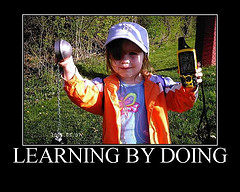I’ve been thinking about a mother who told me that her parents did “not approve of” her approach to her elementary school-aged son’s “less than stellar” grades. As the conversation unfolded I remember she shared a number of important thoughts. She was proud of her child. According to Mom, the young “offender” was:
– kind and compassionate
– a bundle of energy
– very curious and interested in learning
– socially motivated, with great people skills to match
– fairly disinterested in grades
While the “prevailing wisdom” — both from her in-laws and several elementary school teachers — was that this “live wire” should be grounded from sports, outdoor breaks and extra-curricular activities until his marks improved, this Mom disagreed.
“I know people think that I’m far too easy on him, that he’s lazy, and that I’m making excuses that enable poor school performance. I just can’t figure out how to turn teachers’ comments into a currency that’s meaningful for him. And, I still think, if you’re trying to raise a life-long-learner, education needs to be its own reward. Am I wrong?”
Perspective is an interesting thing. Is this kiddo reflecting his Mom’s values? Clearly she did not consider test scores or grades the holy grail of learning. She worried that turning the whole grade “thing” into a battle of wills would have a detrimental effect on her child’s considerable curiosity and desire to learn.
“Maybe I’m wrong but I think that punishing him because he learns differently will do a lot more harm than being a ‘C’ student ever could,” she said.
In an era that sees parents challenging students’ grades on behalf of their kids this is an unusual attitude. A child appears to be performing below potential and receives grades that reflect that reality. Isn’t that as it should be?
Or do you think she’s being short-sighted? Limiting her child’s future opportunities by not demanding high scores? Or is she choosing her battles wisely and accepting her child “as is,” regardless of the opinions of others?
Related articles
- May I Leave Work Early? I Have to Stay After School
- 5 Step Guide to the Parent Teacher Conference for Elementary School Parents
- State Representative Says “No Pass, No Play” to Students With Poor Grades



